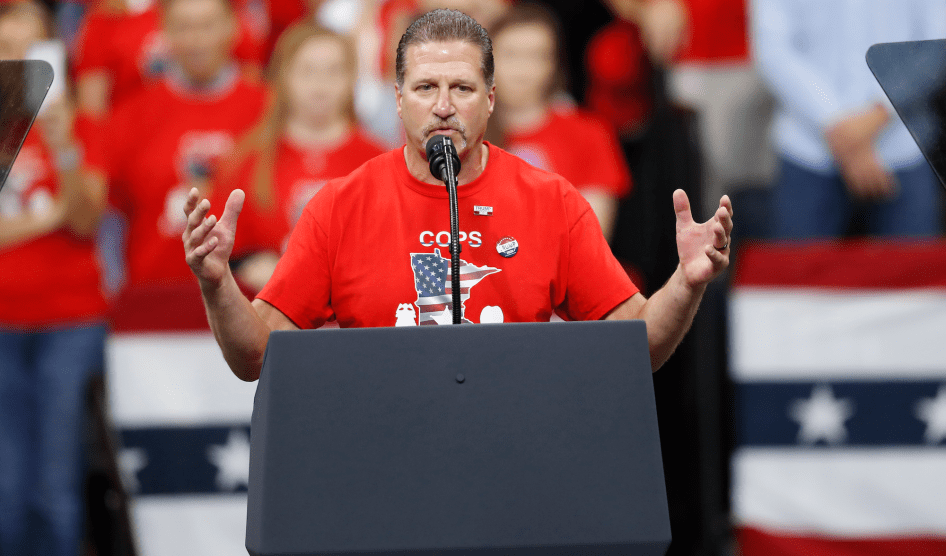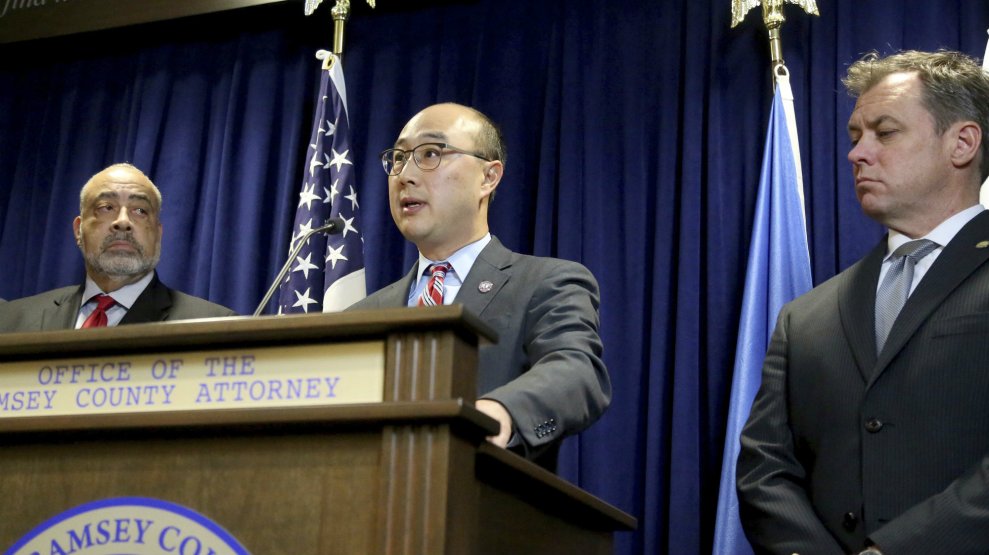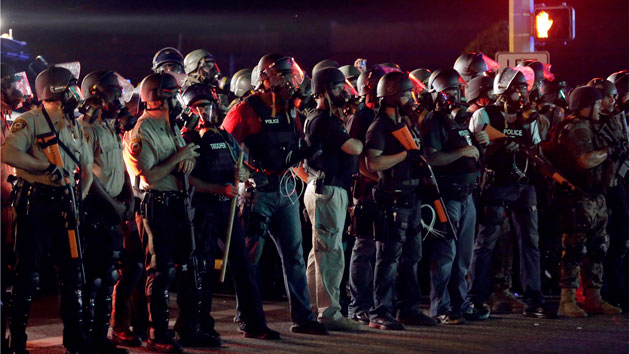
Lt. Bob Kroll, president of the Police Officers Federation of Minneapolis, at a Trump rally in October 2019.Richard Tsong-Taatarii/AP
George Floyd’s killing on Monday at the hands of a white police officer is sparking intense scrutiny of the Minneapolis Police Department—an institution long plagued by allegations of misconduct and racist abuse—and the controversial restraint tactic that led to Floyd being suffocated to death while pinned to the ground, as he repeatedly told officers he could no longer breathe.
While an investigation is underway over the use of the chokehold in Floyd’s death, it’s worth taking a look at the “warrior-style” police training that for years had been popular with the city’s top police union. For the unfamiliar, the training, as we reported in 2017, generally espouses a “killology” vision of law enforcement that’s frequently likened to “fear porn.” Experts say the training, which has been linked to high profile police-related killings around the country, including Philando Castille’s 2016 shooting death, also in Minnesota, often runs the risk of the use of unnecessary, and sometimes, fatal force:
This approach to policing is outdated and ineffective, says Stoughton, and, “some of it is dangerously wrong.” Samuel Walker, a criminal-justice professor and expert on police accountability, says the “Bulletproof Warrior” approach is “okay for Green Berets but unacceptable for domestic policing. The best police chiefs in the country don’t want anything to do with this.”
Citing the “killology” mentality, Minneapolis Mayor Jacob Frey ultimately banned the training last year but the move infuriated Minneapolis Police Union President Lt. Bob Kroll. Shortly after the decision was announced, Kroll called the ban illegal and said that the union would continue to make the training available to any interested officers. “It’s not about killing, it’s about surviving,” Kroll said at the time.
Though it’s not clear if anyone actually took up the offer for additional training, Kroll’s resistance to police reform should take on new significance after Floyd’s killing. So too should his comments on “the handcuffing and oppression of police.”
“The Obama administration and the handcuffing and oppression of police was despicable,” Kroll said while speaking at a Trump rally in October. “The first thing President Trump did when he took office was turn that around…he decided to start let cops do their job, put the handcuffs on the criminals instead of on us.”









